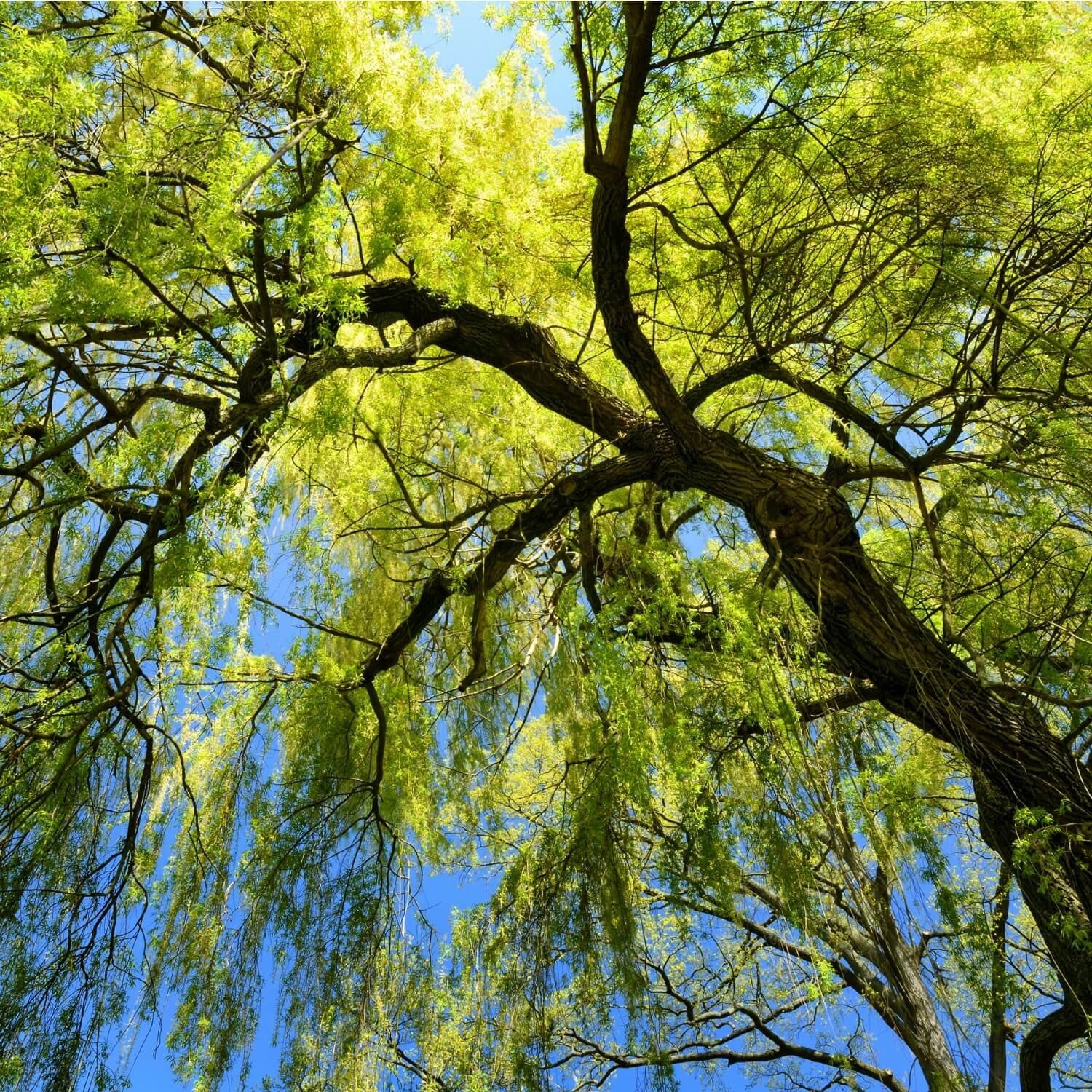Weeping Willow

Weeping Willows cannot be shipped to AK, AZ and HI due to state restrictions.
About
This peaceful beauty is dramatic in its appearance - few trees offer such grace to the landscape. It’s well-known for its open crown of wispy, ground-sweeping branches and long, slender leaves. Often seen as one of the first indications of Spring, the weeping willow’s yellow twigs and green foliage appear early in the season - sometimes as early as February. This graceful and refined beauty also offers wonderfully brilliant Fall colors. The Weeping Willow is easy to grow and quick to take root and will thrive in a wide range of soil and moisture conditions.
Wildlife
The Weeping Willow provides food for big game, rabbits, and beaver. Deer and other big game will browse on it. It provides nesting sites for numerous small birds and mammals.
Quirky Facts
Its occurrence along the Euphrates River eventually fooled the famous botanist, Linnaeus, into thinking this was the Willow of biblical mention, so he gave it the scientific name of babylonica. Later, it was the shade of a Weeping Willow that helped comfort Napoleon during his exile on the Island of St. Helena. After Napoleon was buried under his favorite tree, cuttings from it became a valued prize among his admirers worldwide.

Weeping Willows cannot be shipped to AK, AZ and HI due to state restrictions.
About
This peaceful beauty is dramatic in its appearance - few trees offer such grace to the landscape. It’s well-known for its open crown of wispy, ground-sweeping branches and long, slender leaves. Often seen as one of the first indications of Spring, the weeping willow’s yellow twigs and green foliage appear early in the season - sometimes as early as February. This graceful and refined beauty also offers wonderfully brilliant Fall colors. The Weeping Willow is easy to grow and quick to take root and will thrive in a wide range of soil and moisture conditions.
Wildlife
The Weeping Willow provides food for big game, rabbits, and beaver. Deer and other big game will browse on it. It provides nesting sites for numerous small birds and mammals.
Quirky Facts
Its occurrence along the Euphrates River eventually fooled the famous botanist, Linnaeus, into thinking this was the Willow of biblical mention, so he gave it the scientific name of babylonica. Later, it was the shade of a Weeping Willow that helped comfort Napoleon during his exile on the Island of St. Helena. After Napoleon was buried under his favorite tree, cuttings from it became a valued prize among his admirers worldwide.
The Living Urn System with Weeping Willow Seedling

About
This peaceful beauty is dramatic in its appearance - few trees offer such grace to the landscape. It’s well-known for its open crown of wispy, ground-sweeping branches and long, slender leaves. Often seen as one of the first indications of Spring, the weeping willow’s yellow twigs and green foliage appear early in the season - sometimes as early as February. This graceful and refined beauty also offers wonderfully brilliant Fall colors. The Weeping Willow is easy to grow and quick to take root and will thrive in a wide range of soil and moisture conditions.
Wildlife
The Weeping Willow provides food for big game, rabbits, and beaver. Deer and other big game will browse on it. It provides nesting sites for numerous small birds and mammals.
Quirky Facts
Its occurrence along the Euphrates River eventually fooled the famous botanist, Linnaeus, into thinking this was the Willow of biblical mention, so he gave it the scientific name of babylonica. Later, it was the shade of a Weeping Willow that helped comfort Napoleon during his exile on the Island of St. Helena. After Napoleon was buried under his favorite tree, cuttings from it became a valued prize among his admirers worldwide.
Unlike Evergreens, which we ship year-round, Seasonal trees are shipped in early to mid-Spring and again in early Fall and are sent according to your local climate and this year's weather. This is done to be sure your tree is planted at the optimal time. Also, to be sure that your seedling arrives in a strong and healthy condition, we need to ship Seasonals when they are dormant in the Spring and Fall. Send us an email to info@thelivingurn.com or call us at (800) 495-7022 with questions or for more information regarding the delivery date of your tree.

